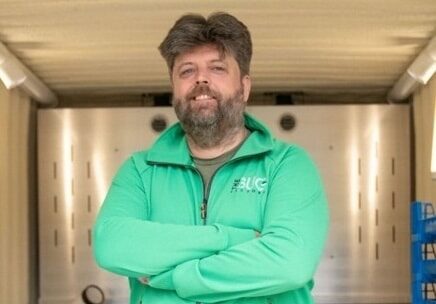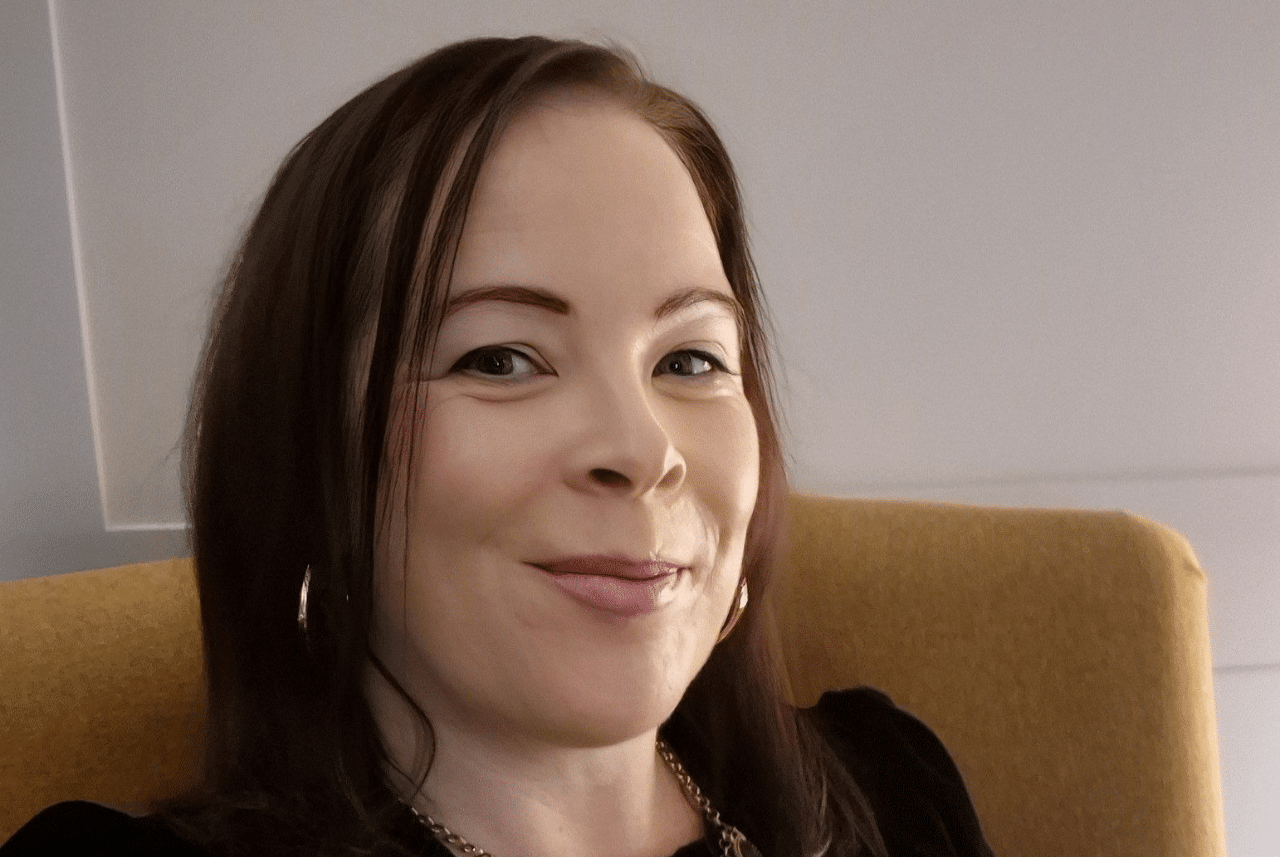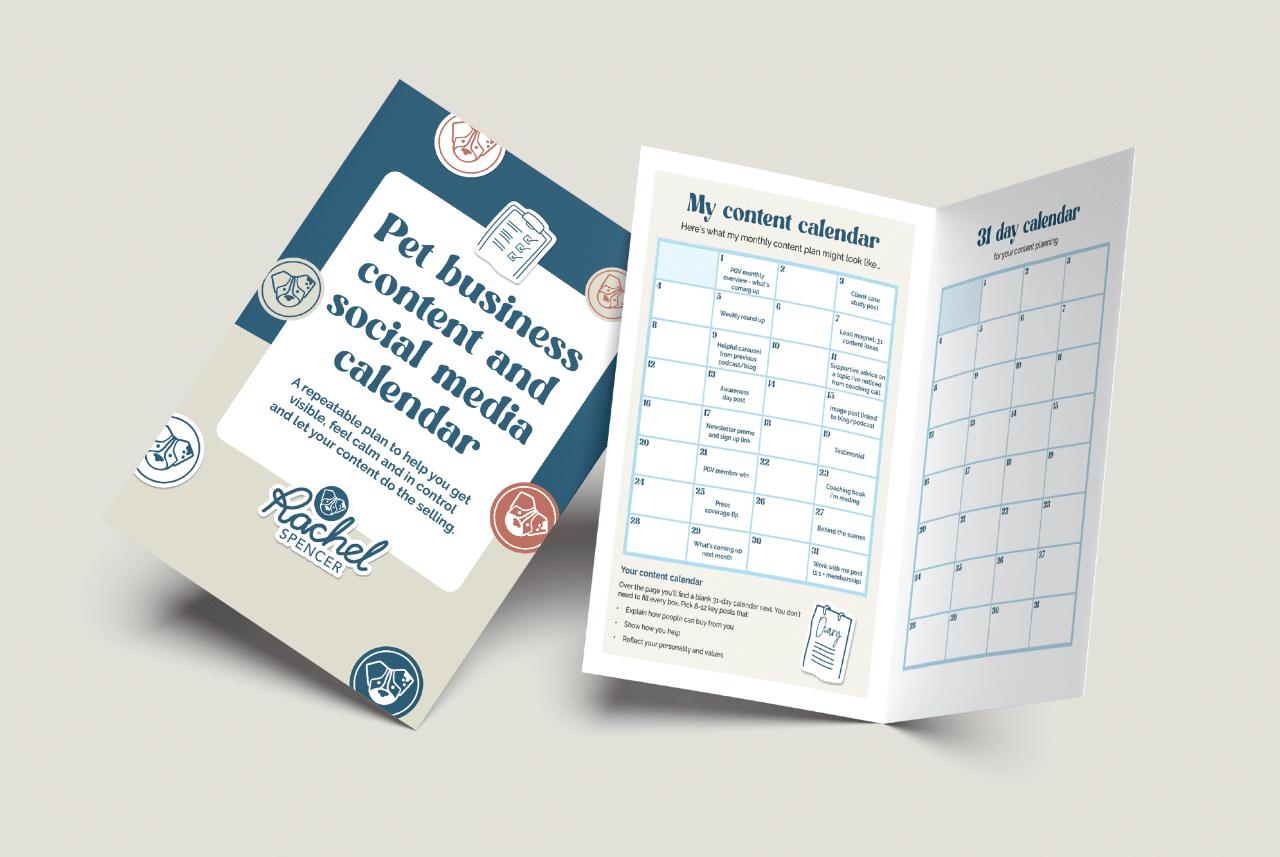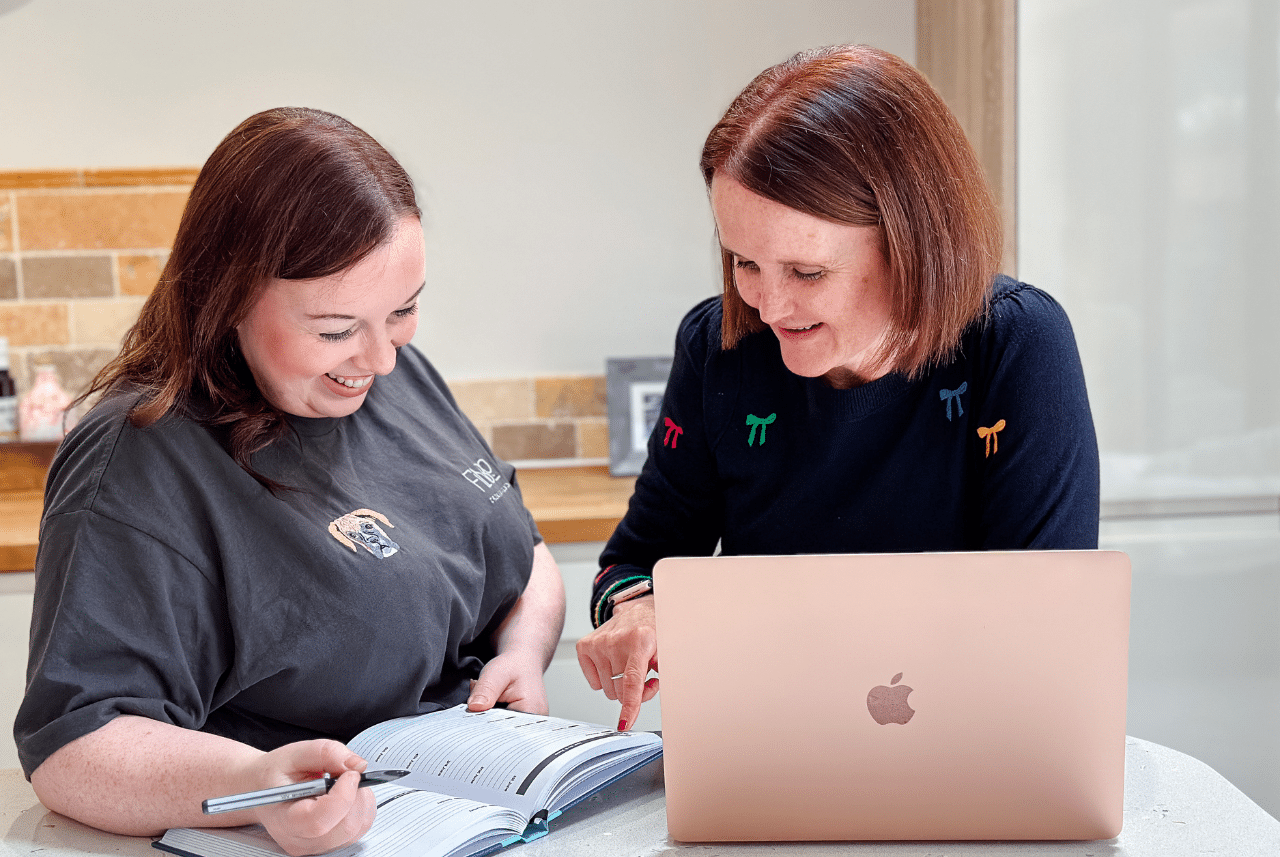Clayton Payne is a pet industry expert who’s been in the trade for over three decades – and who’s built one of the UK’s most well-known and well-respected wholesale businesses from scratch.
He shares what it was like starting out as a young lad knocking on doors trying to get products into shops, how he built a business that turned over millions, and why staying real and relatable has been such a big part of his success.
Clayton also talks about what it’s like to be hated and not taken seriously, and how he pushed forward and learned not to care what people thought about him, to the point where he says he ‘loved’ being disliked.
We talk about the highs and lows of running a business in the pet industry, being consistent and reliable, and how the sector has changed since he started out in the 90s, especially when it comes to social media, brand building, and visibility.
Clayton also speaks about his own challenges, including overcoming alcohol addiction in his early twenties, how he still experiences imposter syndrome, and the toll success can take behind the scenes.
If you want to know what it’s like growing a pet business that stands the test of time – and what it means to be a disruptor – you will love this conversation.
All the links to connect and learn more from Clayton, plus how to tune into his brilliant Pet Business Disruptors podcast are at the bottom of this post.
Click on the player link below to listen to this episode.
Scroll to the bottom of this post to read a transcript of the key points covered.
What we cover in this conversation
Clayton shares how he built his wholesale business from the ground up, starting with door-knocking and eventually reaching a multi-million pound turnover.
We talk about the importance of showing up for your customers, building trust, and why reliability often matters more than price.
Clayton opens up about dealing with being disliked in the industry and why being authentic and not trying to please everyone was key to his growth.
He shares how being in recovery from alcohol addiction helped shape his mindset and the way he approaches business and life today.
We chat about the rise of premium products for cats, changes in buying behaviour online, and why disruptors are the ones who take action.
Key quotes from Clayton Payne on 30 years in the pet industry
“I always had imposter syndrome. I used to think, who am I to give advice? But the truth is, I’d lived it – and that’s what matters.”
“I was relentless. If someone said no, I just came back the next week. I wasn’t afraid to keep going until something worked.”
“People obsess over price, but it was never about that for us. It was always about service and trust.”
“If you’re going to be successful, get used to being hated – not everyone is going to like it when you do well.”
“I shoot my arrow and wherever it lands, that’s the target. You never quite know which way the wind’s blowing.”
“To be a disruptor, you have to stop talking about the idea and actually do the thing.”
Topics and timings in this episode:
1.00 – Introduction to Clayton and his background.
3.00 – Growing up in the pet industry and early career.
6.45 – Creating and scaling a successful wholesale business.
9.30 – Disrupting the natural treat industry in the UK.
12.00 – How the industry has evolved since the 90s.
15.10 – Why it’s harder (and easier) for brands today.
18.00 – Supporting challenger brands and working with agility.
21.30 – Breaking through and being taken seriously in the early years.
24.20 – The impact of a major competitor going under – and how it led to huge growth.
27.15 – Why service and reliability matter more than price.
29.00 – Showing up for your customers and staying consistent.
31.00 – Dealing with rejection and staying resilient.
33.10 – How tailoring your approach to each pet shop can improve your chances.
35.20 – Is your product truly viable for retail? A reality check for small brands.
39.15 – How challenger brands can approach route to market and minimum orders.
41.45 – Why the Pet Business Disruptors podcast was created.
43.00 – Imposter syndrome and showing up as yourself.
45.00 – How authenticity and personality became a strength.
48.30 – Being disliked by the industry – and why that’s not always a bad thing.
52.00 – The importance of staying focused on the right people.
54.15 – How travel helped with perspective and resilience.
56.30 – Life now – consultancy, the podcast and new opportunities.
58.45 – The impact of long-term sobriety and recovery.
62.30 – How being sober supercharged business success.
65.00 – The myth of perfect timing – why it’s never too late to do what you want.
67.00 – Market shifts in 2025 – the rise of premium cat products.
68.30 – What’s changing with AI, SEO and e-commerce.
69.30 – What it takes to be a true disrupter.
Links mentioned in this episode:
Connect with Clayton on LinkedIn: https://www.linkedin.com/in/clayton-payne-a6772244/
On Apple Podcasts: https://podcasts.apple.com/gb/podcast/pet-business-disruptors/id1759599442
Listen on Spotify: https://open.spotify.com/show/1O6vFMl3vquGsl0tin2b6n
Download the new pet business content and social media calendar: http://rachelspencer.co.uk/calendar
Related episodes:
Should you buy my pet business content planner?
Takeaways from the Business of Pets event 2025
Reframing imposter syndrome with Nicola Kinnard-Comedie
Building resilience as a pet professional with Andrew Hale
The NatWest Accelerator and how it can help your pet business
Takeaways from the PIF Business of Pets conference 2024
Lessons from Theo Paphitis SBS 2025
Episode Transcript – please note this is AI generated and a summary of the key points covered
Rachel Spencer: Clayton, hi, and thank you so much for coming on the podcast. It’s brilliant to have you here. Can you tell us a little bit about you and what you do?
Clayton Payne: I’m Clayton Payne and I’ve been in the pet industry my whole life. I grew up in a pet shop – my parents had one when I was a kid – and apart from a short break, I’ve always worked in the industry. I’ve worked for manufacturers, wholesalers, and retailers, done shows around the world, brought products to market, and managed marketing campaigns and strategic decisions for companies of all sizes.
I also host a podcast called Pet Business Disruptors, where I share my knowledge to help people starting out in the industry, or those who just want to know more.
Rachel: Thanks for sharing that. You’ve told me before about bringing natural treats to the UK. Can you paint a picture of what life’s been like for you over the last 20–30 years?
Clayton: I grew up in my parents’ traditional 1980s-style pet shop – frozen meat and biscuits – and saw it change to a kibble-based store. I worked at the World Dog Show in Brussels in 1995 with Gilbertson and Page, and because my parents moved around, I also experienced the industry in Belgium, where they ran a distributor and a grooming parlour with a shop.
Later, a friend and I started a wholesale business. We grew it over 22 years into a national company with multi-million-pound turnover. One of the things I’m known for is disrupting the natural dog treat industry. In the late 90s I introduced products like chicken feet, rabbits’ ears with fur, puffed pig snouts – items that are now staples in pet shops.
We sold the business in 2019, and since then I’ve been doing consultancy – helping companies create products, brand them, find their USPs, and get into markets like the US, working with big names such as Chewy.com, Petco and Tractor Supply.
Rachel: You started in the 90s. If 90s Clayton could see the industry now, what would he think?
Clayton: It would be almost unrecognisable. Back then, to be a wholesaler you needed your own vans, your own deliveries, and you sold via shows or magazines. Now you can use third-party logistics, couriers, and reach customers directly via social media.
Retail was also very different – supermarkets only had a small pet range. Now, pet products are everywhere, and the whole structure of the industry has changed. Competing today is global, not just local.
Rachel: Is it easier or harder now?
Clayton: Harder. Back then you competed with local companies. Now, you’re competing with the whole world – even your manufacturer in China can sell direct to consumers. But it’s easier to build a niche brand now than a generalist one, because you can reach very specific audiences online.
Rachel: You’ve worked with both big and small brands. What’s the difference?
Clayton: Large brands have budgets and specialists but are slow to move – getting a product to market can take a year. Challenger brands are agile and can bring something out in a month, but they don’t always have the resources or expertise. I enjoy working with agile brands that think outside the box.
Rachel: What challenges do smaller “challenger” brands face?
Clayton: Small teams can’t cover everything – design, retail knowledge, distribution, margins. Bigger companies have departments for all of that. For smaller brands, blind spots can be fatal – you might have a great product but no plan for getting it into stores, pricing it right, or keeping quality consistent.
Rachel: What were your toughest challenges starting out?
Clayton: Being taken seriously. In 1997, we were young, up against huge competitors, and barely making enough to pay ourselves £100 a week. But we were consistent, thought differently, and took risks. It took years of persistence – sometimes visiting a shop 15 times before they bought from us.
Rachel: How did you grow from that to a multi-million-pound business?
Clayton: Partly through competitors going bust – we took their customers by acting quickly, delivering what people needed, and building trust. Service was always our strength, not price. We made sure customers could rely on us.
Rachel: How did you keep going when doors kept closing?
Clayton: Don’t take it personally. Often it’s about them, not you. And adapt your approach – tailor your pitch to each shop, just like you would tailor a CV to a job.
Rachel: What advice would you give to a small brand wanting to get into 10 local pet shops?
Clayton: Understand your product’s route to market. Will a shop sell enough to meet your minimum order? Would you be better selling via a wholesaler? Can you group products with other brands? Sometimes it’s cheaper to send a free sample and sell through wholesale than to visit in person.
Rachel: Tell us about your podcast.
Clayton: I wanted to share my knowledge with people who couldn’t afford consultancy, and give a platform to others in the industry. I bring on guests from different areas so listeners get varied perspectives and practical advice.
Rachel: You’ve mentioned imposter syndrome – can you talk about that?
Clayton: For years I felt I wasn’t “professional” enough because I didn’t fit the corporate mould – no suit, no company car. Working in America helped me see my value. Authenticity works now, but early on it was seen as unprofessional.
Rachel: How did you handle being disliked in the industry?
Clayton: We were seen as disruptors and some people spread rumours about us. But being hated comes with success. I learned not to care – their bitterness was about them, not me.
Rachel: What helped you through tough times?
Clayton: Travelling to unusual places – it gave me perspective. I never had a mentor, which is why I try to be there for others now.
Rachel: What’s life like for you today?
Clayton: I do consultancy, run the podcast, and attend events. I don’t plan too far ahead – I just aim to help people while earning enough to live comfortably.
Rachel: You’ve been sober for many years. Has that shaped your business?
Clayton: Definitely. I stopped drinking in 1999 after realising I was an alcoholic. Sobriety gave me focus and probably saved the business. I live by “just for today” – I focus on what I can do now.
Rachel: What trends are you seeing in the industry right now?
Clayton: The smart money is in cats – the most underserved, fastest-growing, premiumising market. More cats are kept indoors and treated like family, so products are improving. Buyers are actively seeking premium cat products.
Rachel: Anything to watch out for in online retail?
Clayton: AI is changing how products are found online – SEO and pay-per-click are becoming less important. TikTok Shop is big now, but platforms change quickly. Don’t rely on one channel – spread your presence across retail, Amazon, and multiple platforms. Keep evolving your product range.
Rachel: What does it take to be a disruptor?
Clayton: See the world differently and act on it. Take calculated risks, challenge the status quo, and leave an impression.
Rachel: Where can people connect with you?
Clayton: LinkedIn is best. I also have Facebook and Instagram pages for Pet Business Disruptors, but I check LinkedIn most days.





